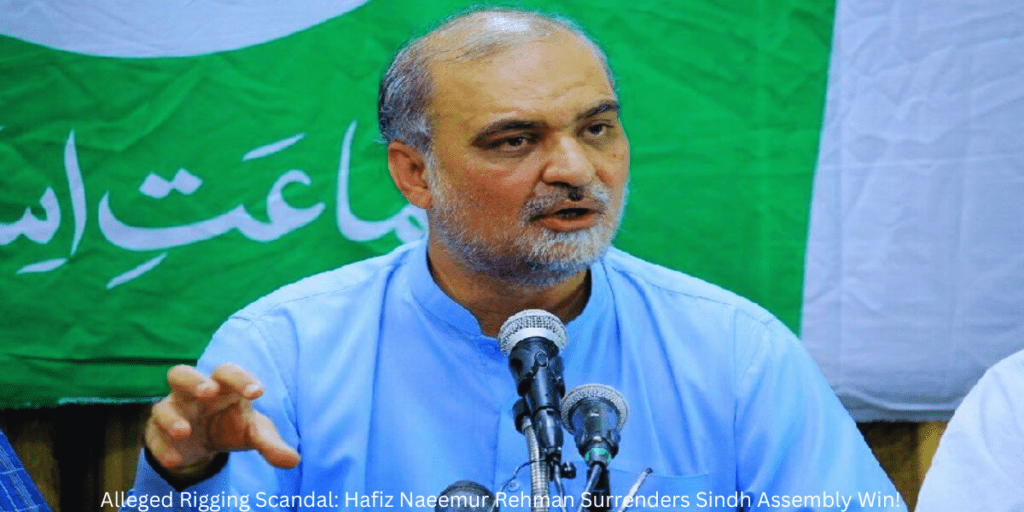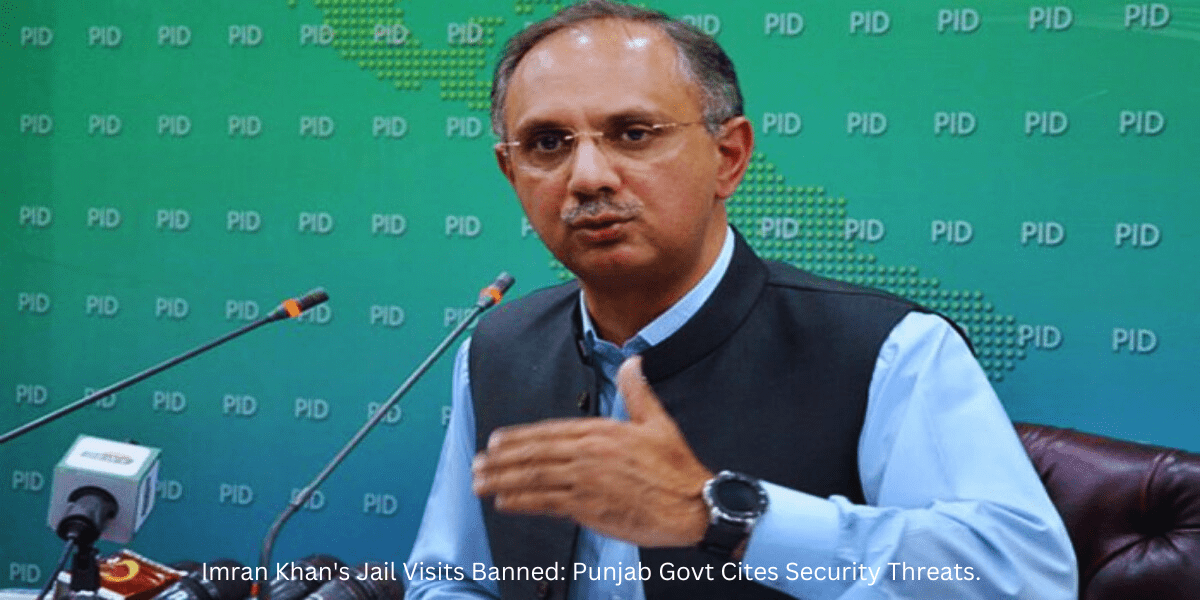
Hafiz Naeemur Rehman’s decision to forfeit his Sindh Assembly seat following allegations of rigging in the February 8 elections has sent shockwaves through the political landscape.
His bold move, citing discrepancies in the vote count and the imposition of rival candidates, underscores the importance of electoral integrity.
By stepping down and demanding justice, Rehman has ignited a fervent debate over the credibility of the electoral process in Karachi. The outcry for transparency and fairness resonates not only within his party but among concerned citizens across the nation.
As the controversy unfolds, it serves as a stark reminder of the critical need for accountability and safeguards to uphold the democratic principles upon which societies are built. Rehman’s principled stand sets a powerful precedent for political leaders to prioritize the public trust and uphold the sanctity of the electoral system.
Hafiz Naeemur Rehman’s decision to forfeit his Sindh Assembly seat following the February 8 elections highlights the challenges facing Pakistan’s electoral system. His principled stand against alleged rigging serves as a rallying cry for transparency, accountability, and fairness in elections. Rehman’s actions resonate beyond party lines, reminding us of the fundamental importance of upholding democratic values and ensuring free and fair elections.
Hafiz Naeemur Rehman’s Decision to Forfeit Sindh Assembly Seat
Hafiz Naeemur Rehman, the chief of Jamaat-i-Islami Karachi, made a significant decision following the February 8 elections in Sindh, Pakistan. This decision reverberated across the political spectrum and raised questions about electoral integrity and fairness.
Following the announcement of provisional results by the Election Commission of Pakistan (ECP), Rehman raised serious concerns about the integrity of the electoral process. He alleged discrepancies in the vote count, particularly in the PS-129 constituency, where he secured victory. Rehman claimed that the ECP had shown fewer votes for his party than they actually received, casting doubt on the transparency of the election.
Challenging the Results
Rehman’s party staged sit-ins and protests across Karachi, demanding an investigation into the alleged rigging. The controversy intensified as Rehman accused the Muttahida Qaumi Movement-Pakistan (MQM-P) of inflating their vote count and imposing rival candidates on the electorate. These allegations triggered a wave of discontent and unrest among supporters of various political parties.
Rehman’s party staged sit-ins and protests, demanding an investigation into the alleged rigging. Despite initial victory, Rehman chose to forfeit his Sindh Assembly seat, citing concerns over electoral fraud. He asserted that the PTI-backed independent candidate, Saif Bari, had actually won according to his team’s calculations, with his votes allegedly reduced from 31,000 to 11,000.
Demand for Justice
Rehman’s resignation was not merely a symbolic gesture but a call to action for justice and electoral reforms. He demanded that all seats won by his party be returned and called for a fresh election in Karachi to ensure fairness and transparency. Rehman’s principled stand garnered support from various quarters, including the PTI-backed independent candidate, Saif Bari, whose victory was contested due to alleged irregularities.
Rehman’s bold move sent shockwaves through the political landscape of Karachi and beyond. It underscored the deep-seated concerns about electoral fraud and manipulation. His actions galvanized support from various quarters, including the PTI, which lauded his decision. The controversy surrounding the election results brought to light the need for comprehensive electoral reforms to prevent such incidents in the future.
In a bold and unprecedented move, Rehman announced his decision to forfeit his Sindh Assembly seat, despite initially winning from the PS-129 constituency. He cited the alleged rigging and irregularities as the primary reasons for his resignation. Rehman’s decision sent shockwaves through the political landscape, highlighting the extent of mistrust and disillusionment with the electoral process.
Frequently Asked Questions(FAQ’s)
Q: What prompted Hafiz Naeemur Rehman to forfeit his Sindh Assembly seat?
A: Hafiz Naeemur Rehman forfeited his seat due to alleged rigging in the February 8 elections, claiming discrepancies in the vote count.
Q: What implications does Rehman’s resignation have for future elections?
A: Rehman’s resignation underscores the importance of accountability and transparency in elections, setting a precedent for political leaders to prioritize the public trust.
Q: How did Hafiz Naeemur Rehman’s decision impact the political landscape?
A: He asserted that the PTI-backed independent candidate, Saif Bari, had actually won according to his team’s calculations, with his votes allegedly reduced from 31,000 to 11,000.




Leave a Reply